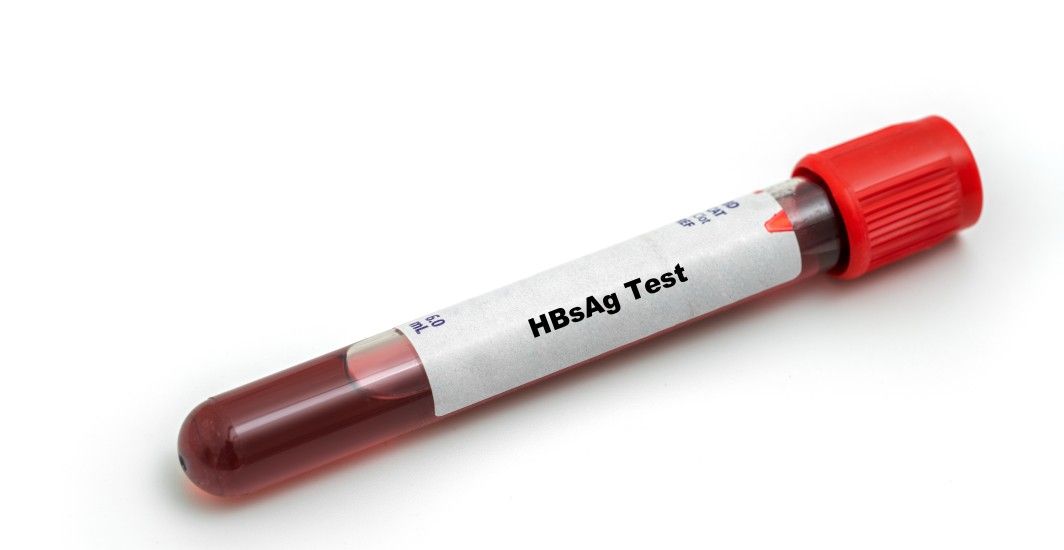General Health
Sudden Muscle Weakness Or Pain After Exertion? Know What A CPK Test Reveals About Muscle Or Heart Damage
6 min read
By Apollo 24|7, Published on - 29 May 2025
Share this article
0
0 like
.jpg?tr=q-80)
Experiencing sudden muscle weakness or pain after physical exertion can be concerning. While occasional soreness is a normal response to activity, symptoms that are persistent, intense, or appear without a clear cause may signal something more serious, such as muscle injury or heart-related issues. One of the key diagnostic tools used to evaluate these symptoms is the Creatine Phosphokinase (CPK) blood test. This test measures enzyme levels released into the bloodstream when muscle tissue is damaged, helping doctors assess muscle health, detect cardiac events, and uncover underlying conditions that may be contributing to your discomfort.
What is a CPK (Creatine Phosphokinase) Blood Test?
The CPK blood test measures the levels of creatine phosphokinase (CPK), an enzyme found in muscles, the heart, and the brain. This enzyme plays a crucial role in energy production within cells. When muscle or heart tissue is damaged, CPK leaks into the bloodstream, leading to elevated levels that can be detected through a blood test.
There are three types of CPK isoenzymes, each associated with different tissues:
- CPK-1 (CPK-BB): Found in the brain and lungs
- CPK-2 (CPK-MB): Found in the heart muscle
- CPK-3 (CPK-MM): Found in skeletal muscles
Doctors use the CPK test to determine whether muscle or heart damage has occurred and to guide appropriate treatment.
Why Doctors Recommend a CPK Test for Muscle or Heart Symptoms
If you present with sudden muscle pain, unexplained fatigue, chest discomfort, or muscle weakness after exercise, your doctor may order a CPK test to understand if these symptoms are linked to muscle or heart damage.
Doctors also use this test to:
- Evaluate damage after a heart attack
- Monitor muscle disorders such as polymyositis or rhabdomyolysis
- Assess the effects of medications known to harm muscles (e.g., statins)
- Track recovery progress after muscle injury or surgery
Early diagnosis through a CPK test helps prevent further complications, such as kidney failure from muscle breakdown or cardiac arrest following unnoticed heart damage.
How Muscle and Heart Cells Release CPK During Damage?
Under normal circumstances, only small amounts of CPK circulate in your bloodstream. However, when muscle fibres are damaged, inflamed, or under stress, they rupture or leak their contents, including CPK, into the blood.
Some common triggers for this damage include:
- Strenuous exercise or overexertion
- Trauma (e.g., car accidents or falls)
- Infections affecting muscles
- Inflammatory diseases
- Heart conditions, like a myocardial infarction (heart attack)
Since each type of muscle contains different CPK isoenzymes, measuring which one is elevated provides clues to the location and extent of the injury.
Conditions That Can Cause Elevated CPK Levels
High CPK (Creatine Phosphokinase) levels can signal muscle, heart, or neurological damage. Some common causes include:
- Heart Attack: When the heart muscle is damaged, CPK levels rise, typically peaking within a day and returning to normal in a few days.
- Rhabdomyolysis: Rapid muscle breakdown can release large amounts of CPK, potentially leading to kidney damage if untreated.
- Muscular Dystrophy: Conditions like Duchenne muscular dystrophy cause ongoing muscle damage, resulting in high CPK levels.
- Seizures or Stroke: Brain injuries from seizures or strokes can raise CPK levels.
- Inflammatory Muscle Diseases: Conditions like polymyositis cause muscle inflammation, increasing CPK levels.
- Medications and Toxins: Some medications, like statins, and toxins like snake venom can cause muscle damage and elevate CPK.
- Intense Exercise: Vigorous physical activity can temporarily increase CPK levels. In extreme cases, it can lead to muscle injury or rhabdomyolysis.
Have more questions?
When to Consider Getting a CPK Test
Your doctor may recommend this test if you have:
- Muscle pain, tenderness, or stiffness after minimal physical activity
- Chest pain that is not related to digestion and it may indicate heart muscle stress
- Dark-colored urine, which can be a sign of muscle breakdown (rhabdomyolysis)
- Muscle weakness or swelling, suggesting possible inflammation or injury
- Recent trauma or an accident affecting muscle tissue
- Symptoms of statin-induced muscle injury, such as unexplained muscle pain or weakness
- Neurological symptoms following a seizure or stroke, which may indicate brain tissue damage
- A CPK test is particularly recommended if these symptoms persist beyond normal post-exercise recovery or worsen over time.
How to Prepare for a CPK Blood Test
Most of the time, no special preparation is needed for a CPK test. However, you may be advised to:
- Avoid intense physical activity for 24 hours before testing
- Inform your doctor of all medications and supplements you’re taking
- Stay well hydrated
- Let your provider know about any recent injections, falls, or surgeries
- In some cases, fasting might be recommended if other blood tests are done simultaneously.
What to Expect During the CPK Test Procedure
The procedure is quick and straightforward:
- Preparation: A healthcare provider cleans the skin on your arm with an antiseptic wipe.
- Blood Draw: A small needle is inserted into a vein to collect a blood sample. You may feel a brief pinch.
- After the Draw: The needle is removed, and pressure is applied to prevent bruising. A bandage is placed over the area.
- Sample Analysis: Your blood sample is sent to a lab, where CPK levels are measured.
The entire process typically takes less than 10 minutes, and results are usually available within a few hours to a day, depending on the laboratory.
Interpreting Your CPK Blood Test Results
For adults, the typical reference range is 20–200 units per litre (U/L). However, factors such as age, sex, physical activity, and medical conditions can influence individual results.
Interpreting CPK Test Results
Your doctor will interpret CPK results alongside other tests to determine the cause of elevated levels.
How Elevated CPK Levels Are Managed
Managing high CPK (Creatine Phosphokinase) levels depends on the cause of elevation, with treatment focused on addressing the underlying condition and preventing complications.
- Heart-related conditions: If elevated CPK levels suggest heart muscle damage, doctors may perform electrocardiograms (ECG), troponin tests, and imaging to confirm a heart attack or myocarditis. Treatment may include oxygen therapy, blood thinners, beta-blockers, or emergency interventions like angioplasty.
- Severe muscle breakdown (rhabdomyolysis): Patients with extremely high CPK levels due to muscle injury or drug toxicity are often hospitalised for IV fluid therapy to prevent kidney damage. Electrolyte monitoring and dialysis may be required in severe cases.
- Inflammatory muscle diseases: Conditions like polymyositis or dermatomyositis are managed with corticosteroids, immunosuppressants, and physical therapy to reduce muscle inflammation and improve mobility.
- Medication-induced muscle damage: If statins or other drugs are causing muscle pain and elevated CPK, doctors may adjust the dosage, switch medications, or provide supportive care.
- Exercise-related CPK elevation: If intense physical activity is the cause, hydration, rest, and gradual recovery are recommended. In cases of severe exertion-related muscle damage, hospitalisation may be necessary.
Conclusion
If you experience sudden muscle weakness, pain, or unexplained fatigue, your doctor may order a CPK blood test to check for muscle or heart damage. This test helps detect conditions like heart attacks, muscle injuries, and inflammatory diseases, allowing for early treatment and better recovery. By identifying problems early, doctors can help prevent complications and protect your long-term health.
Book CPK Test
General Health
Leave Comment
Recommended for you

General Health
Have You Ever Had Unprotected Sex Or A Blood Transfusion? Check What An HBsAg Test Explains
If you've had unprotected sex or a blood transfusion, an HBsAg test can reveal hepatitis B infection early, helping you take timely steps to manage and prevent complications.

General Health
How Sleeping Habits Affect The Immunity & Tips To Maintain Sleep Hygiene
Sleep deprivation increases the release of stress hormones, which compromises the immune system. To maintain a healthy sleep cycle, aim for 7-9 hours of sleep per night, establish good sleep habits, and avoid caffeine and alcohol before bedtime.

General Health
Can Hydromassage Heal Your Sore Muscles?
Hydromassage, also known as water therapy, is a therapeutic process that uses pressurized water to soothe muscles and other soft tissues in the body. Read this blog to know everything about hydromassage, hydromassage benefits and side effects.
Subscribe
Sign up for our free Health Library Daily Newsletter
Get doctor-approved health tips, news, and more.
Visual Stories

Could There Be More to Your Snore?
Tap to continue exploring
Recommended for you

General Health
Have You Ever Had Unprotected Sex Or A Blood Transfusion? Check What An HBsAg Test Explains
If you've had unprotected sex or a blood transfusion, an HBsAg test can reveal hepatitis B infection early, helping you take timely steps to manage and prevent complications.

General Health
How Sleeping Habits Affect The Immunity & Tips To Maintain Sleep Hygiene
Sleep deprivation increases the release of stress hormones, which compromises the immune system. To maintain a healthy sleep cycle, aim for 7-9 hours of sleep per night, establish good sleep habits, and avoid caffeine and alcohol before bedtime.

General Health
Can Hydromassage Heal Your Sore Muscles?
Hydromassage, also known as water therapy, is a therapeutic process that uses pressurized water to soothe muscles and other soft tissues in the body. Read this blog to know everything about hydromassage, hydromassage benefits and side effects.